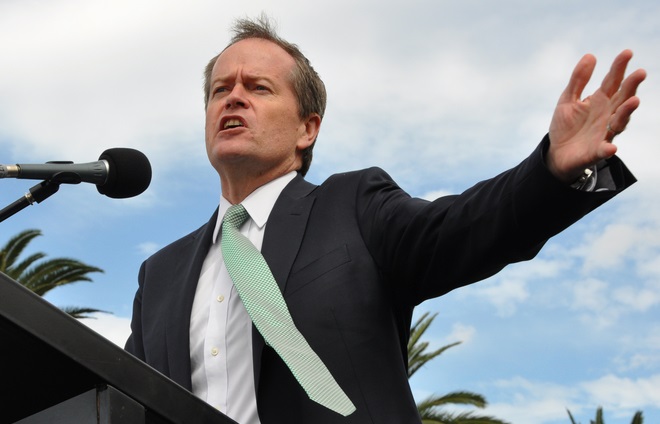
Canberra 5 May 2015. The Royal Commission into union corruption yesterday heard further details of how Mr Bernie Riordan, as Secretary of the NSW Electrical Trades Union, loaned $0.5 million of unsecured members’ money to the NSW Labor Party in a dubious deal arranged by now Senator Sam Dastyari.
When the Labor Party failed to make its first repayment of nearly $150,000, the ETU made no immediate effort to seek to recover the funds.
Not long after the loan was granted, and while the full amount of the loan and interest was still outstanding, then Workplace Relations Minister Bill Shorten appointed Mr Riordan a Commissioner of the Fair Work Commission.
Mr Shorten needs to make clear how much he knew about this clear conflict of interest on the part of Mr Riordan when he recommended the appointment. Mr Shorten now needs to urgently answer these questions:
- Did he know about the significant contribution from Mr Riordan to the ALP?
- Did he make inquiries about the financial interests of Mr Riordan or the other financial interests he was responsible for?
- Did Mr Riordan declare this interest?
- When the appointment was recommended by Mr Shorten to Cabinet and the Governor-General, did Mr Shorten inform them that Mr Riordan was a significant creditor of the Labor Party?
- Was Mr Shorten lobbied by Senator Dastyari or anyone else from the NSW Labor Party to appoint Mr Riordan? If so, did they declare the outstanding $500,000 loan?
If Mr Shorten was aware of this outstanding loan to the Labor Party and the conflict of interest it created, he must explain why he thought Mr Riordan was a fit and proper person to appoint to the FWC. If he was not aware, he must explain why he did not make appropriate inquiries before recommending the appointment.
Mr Shorten must also answer other questions about Mr Riordan’s appointment that were never satisfactorily answered at the time. In mid-2011, Mr Riordan and two other officials were sued by members of his own union in the Federal Court. The multi-million dollar claim sought to recover money he had earned sitting on boards in his capacity as a union official, and return those funds to the union.
The case was abruptly and unexpectedly discontinued on 22 February 2012, without the knowledge or consent of the other two people being sued. In addition, Mr Riordan agreed that this ‘settlement’ of the legal case would not prevent it being brought again at a future date. Mr Riordan’s appointment as a Fair Work Commissioner was announced on 24 February 2012. Mr Shorten was well aware of this significant legal case that was on foot against Mr Riordan. He must explain why he saw fit to recommend his appointment to both Cabinet and the Governor-General while an unresolved multi-million dollar law suit was still pending against him. Mr Riordan has now revealed that it took the intervention of the Governor-General to persuade Mr Shorten to not appoint someone with such a clear unresolved conflict still hanging over them.
What does Mr Shorten know of the deals that led to this claim against Riordan suddenly being discontinued, without the knowledge or consent of all parties, two days before Mr Riordan’s appointment was announced, and what role did Mr Shorten play in these deals? If a deal was done to settle the case immediately but allow it to be brought again at a future date, why was the appointment still pursued? Why did it take the Governor-General to inform him that this appointment could not proceed while the case was still pending?






